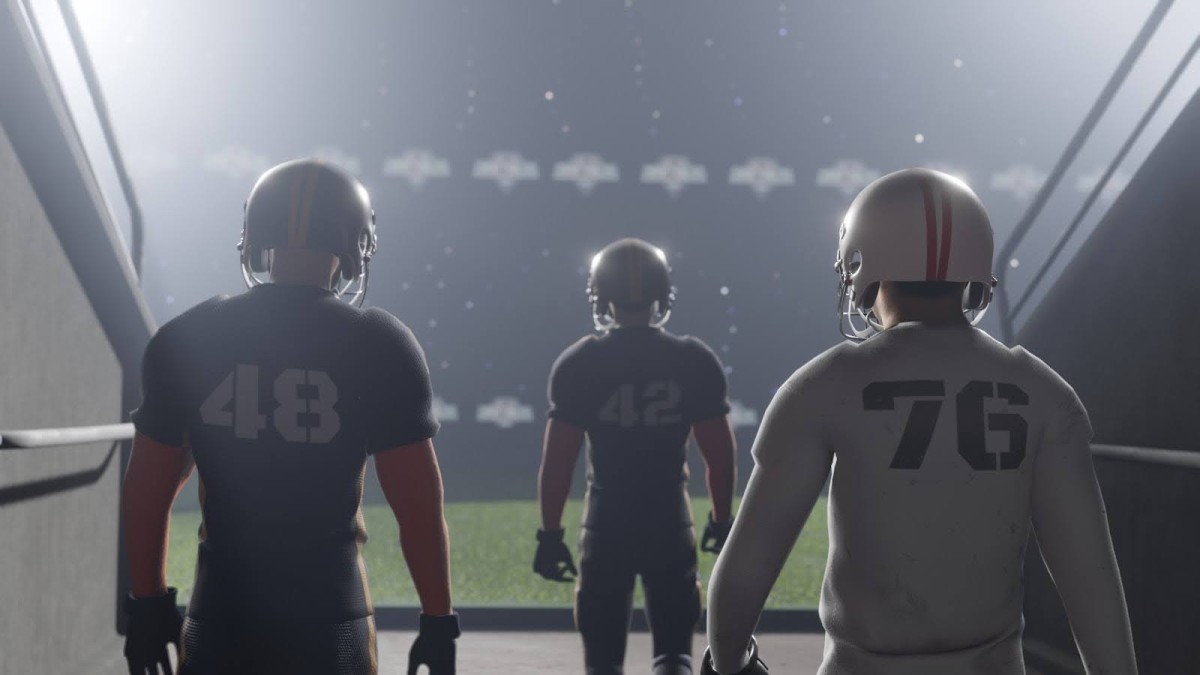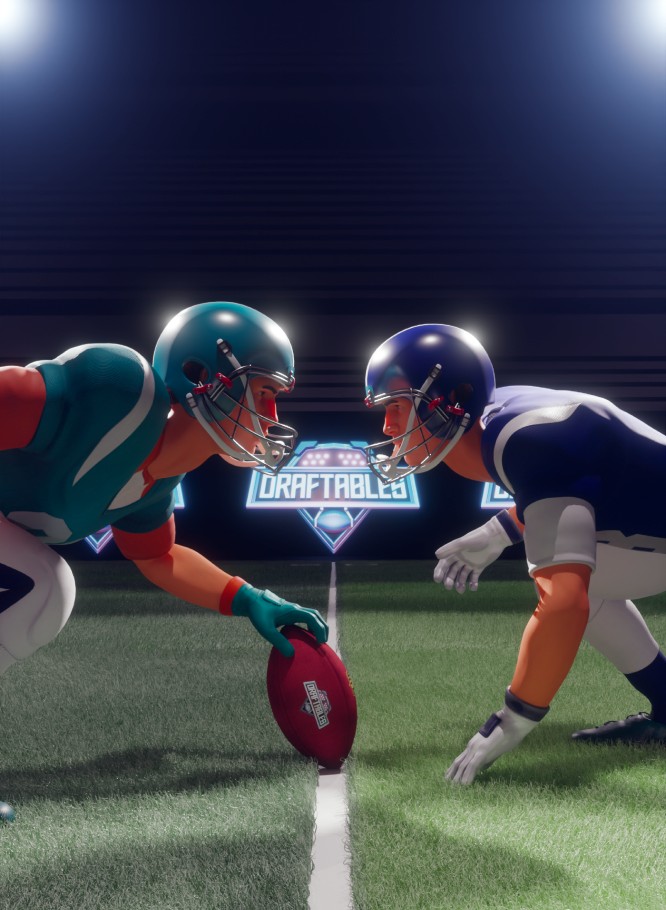Brian Ross is the co-founder and CEO of Draft Labs, the development company behind Draftables, one of the “hidden gaming gems” on Avalanche. Draftables is a customizable American Football sports simulation game where players can run their own unique football franchise, train, compete, and earn crypto rewards.
We spoke with Ross about Draftables, the intricacies of the game, its approach to P2E, the DRFT token launch, and the general outlook of the Web gaming scene.
Hello Brian. Can you briefly tell us about yourself, your Web3 experience, and how it led to founding Draftables?
In 2018, my journey into blockchain began, and I immediately recognized the use cases of blockchain in gaming. Growing up, I was immersed in playing games like Clash of Clans and Fifa Ultimate Team, and the concept of establishing a dual-sided open market economy among users was just mind-blowing to me.
Draftables originated as a passion project between myself and my co-founder, Simon Peterson, longtime friends with a shared love for sports video games. Playing these games together over the years, we began to notice their limitations and embarked on a journey to address these issues using emerging technology. Over time, Draftables has evolved into the game it is today, with a dedicated team of experienced members who have joined us on this journey.
Can you give a brief overview of the game?
Draftables is a digital football world where users act as owners, coaches, and managers of their exclusive digital franchise. They’re tasked with scouting out and training new athletes, building and upgrading the facilities that support their team, and competing online in competitive leagues against other users. To simplify, Draftables combines the world-building features of games such as Clash of Clans or SimCity with the competitive and strategic elements of managerial games like Football Manager or Franchise Mode in Madden Football.
That being said, Draftables is much more than just a game!
It’s a fully digital football realm driven by a peer-to-peer economy. What sets us apart is our integration of some of Web2’s most renowned IPs into Draftables – bridging the gap between Web2 and Web3.

What makes Draftables unique?
I would say one of the most compelling aspects of the game is the uniqueness of each athlete in the game. Unlike NFL-tied players, every athlete you own is unique and exclusive to you—there are no duplicates. This grants users full control over the development of each athlete, compelling them to train and compete regularly to unlock their full potential. This dedication can lead to a more competitive team or enable users to list their enhanced athletes on the marketplace for a higher price.
Oh, I forgot to mention, Draftables is also entirely free-to-play!
It is important for us to address shortcomings in current sports video games and that’s why we decided to be the ones to bring the free-to-play model to sports gaming. Paying to play has long been a significant hurdle in Web3 gaming, and we firmly believe that blockchain technology should not mandate users to purchase an asset to enjoy the game.
How does the game guide players through learning the ropes and building their franchise over time?
It has always been our core focus for Draftables to have a streamlined gameplay experience that appeals to casual gamers and competitive sports fans. Throughout the first few levels, users get introduced to the basic mechanics of the game and are given time to experiment with gameplay at their own pace. As you continue to level up, new buildings unlock, and upgrades slowly increase the depth of strategy within the game, which helps both casual and competitive players avoid becoming overwhelmed by choices and decision-making.
Can you elaborate on the tactical options available to players when managing their teams? Will there be formations, player instructions, and other ways to express personal tactics?
Absolutely! In addition to training and managing their roster on the field, users must coach their teams in real-time matches against opponents. This includes calling plays, setting your lineups and substitutes, and determining your play styles.
Alongside you, your franchise also has a coaching staff that must be managed. Each coach has a different specialization, whether that’s a certain style of play, different play calls that they specialize in, or boosting your team’s training ability. Using your knowledge, in-game experience, and your coaching staff, you must put together a playbook before each game. By combining the tactics behind your coaching staff with the chemistry between your players, there’s a lot of balancing that each user must take into account before preparing to take the field.
The strategic aspects of the game can get super deep for players who want the most realistic experience. However, for more casual players who are less interested in the intricacies of the game’s strategy, Draftables can assist in the decision-making process.

How does Draftables approach the play-to-earn model?
When we set about building an in-game economy, we wanted it to mimic the competitive nature of Draftables and football at large while still retaining the fun and continuity of the game. To do this, we have leaned into mirroring real-world sports economics. From the 10,000-foot view, what this means is that from competing in matches and performing well, users are rewarded with our token, $DRFT.
That said, a cornerstone of a healthy economy is demand outpacing supply. To ensure this, $DRFT can be spent to improve a user’s franchise in several ways. Additionally, $DRFT can be used to purchase compelling in-game assets that range from limited-edition cosmetics to in-game consumables. I don’t want to give away what all of these assets are just yet, but the Founder’s pass NFT will start to introduce our users to them!
Beyond seasonal rewards, what specific use cases will the DRFT token have within the Draftables ecosystem?
$DRFT is the centerpiece in improving your franchise. Whether you want to train your athletes and improve their stats, upgrade your buildings, or simply purchase our season pass or other in-game purchases, our token is the key to rising above the competition. We believe that seasonal games powered by blockchain technology are the future. This means that Draftables will continuously be rolling out new game features, content, and ways to connect with the community. $DRFT powers all of this and enables users to experience everything that the Draftables world has to offer.
Is there a timeline for the DRFT token launch?
I don’t want to share too much just yet, but I can confirm that it will be launching in summer 2024!
Can you share a sneak peek into future plans for Draftables?
One of the first community events that we plan to host is a tournament for users to test out the MVP of Draftables for themselves and share more feedback with us. The MVP is a really fun multi-platform app that gives users a great idea of what is in store. However, it is a testing ground for what users like as we continually build, test, analyze, tear down, and repeat. We had a Closed Alpha tournament near the end of last year that was extremely successful and played a major role in the changes we’ve made to the game since then. This time, we plan to do it on a much larger scale and put some great prizes up for grabs!
Do you plan to support more blockchains and sports?
Right now, our team is solely focused on building an American Football game on the Avalanche blockchain, and we intend to continue focusing on this game for many years to come. We do, however, plan to expand past American Football into other sports when the time is right, and we will certainly consider becoming blockchain agnostic as the Web3 industry continues to shift over the next few years.
What’s your prediction about the future of Web3 gaming?
I think that the Web3 gaming era has had an incredible start over the past 5+ years, despite many gamers not having been presented with good enough games to truly show them the value of bringing things on-chain. I honestly don’t blame them. The UI is clunky, many projects are sketchy or complete rug pulls, and we just don’t have the proper regulations set in place to make this a mainstream commercial product. Who wants to spend $5 in fees on an in-game action? How can you justify that?
Every day, technology becomes stronger and more attractive. Improvements like Avalanche’s subnets are making transactions more cost-effective, and crypto is beginning to legitimize itself as tomorrow’s method of payment and storage rather than just “magic coins.” When you put the entire thing into perspective, the only way for the Web3 gaming industry to go is up.
I believe wholeheartedly that Web3 gaming has an incredible future. Ownable assets and peer-to-peer in-game economies add depth and immersion to gaming that has never been possible until now.
Land a High-Paying Web3 Job in 90 Days: The Ultimate Roadmap
 Interview with Draft Labs Co-Founder/CEO Brian Ross
Interview with Draft Labs Co-Founder/CEO Brian Ross